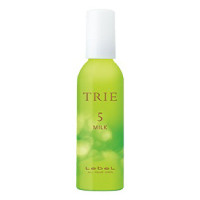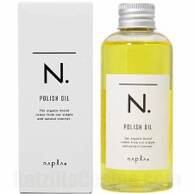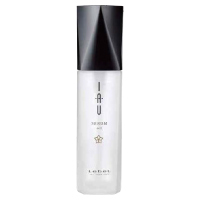Japanese Hair salon in Singapore <Hair Salon MICHAELA in Singapore>
Blogブログ
Do hair dryers damage my hair?
Date : 20/04/2023 19:16
theme : ブログテーマ
A hairdryer is an appliance that was invented by a France stylist back in 1890. This small hand-held device gives us huge convenience as it helps to shorten the process of drying hair. Nowadays, it has become popular and necessary in our daily routine, especially for busy people.
As hair stylists, we work with hair dryers every day. Unfortunately, we have encountered that there are many misunderstandings about hair dryers. In this article, we will explain the fact about hair dryers.
The most common question about hair dryers we have received from our customers is: “Do hair dryers damage my hair?”
The short answer is “No”.
The fact is that if you just leave your wet hair to be naturally dried by itself, the inside of the hair inflates when saturated with water for long time periods. Therefore, the natural drying process will make the hair become prone to be breakable and harmful to your scalp. It even rises the risk of sickness to you, especially for those who sleep with wet hair.
There are many benefits of using a hair dryer that we could list below:
However, there are a few things you need to keep in mind before and while using a hair dryer.
1. Before drying, you need to make sure that your hair is moisturized by applying hair products like hair oil.Here are some hair oils that are most popular and preferred by MICHAELA’s stylists:



For more information about homecare products, please visit: homecare
2. Choose the right hair dryer for your hair type.
If your hair is damaged, it’s fragile. Therefore, you need a hair dryer that has a great heat control setting. It is because applying too much heat to damaged hair would worsen the problem.
If you have curly hair, you should use a diffuser that is usually included with most hair dryers nowadays. It will help to distribute airflow more evenly.
If you have thick/ coarse hair, we recommend you use a higher-wattage hairdryer to dry it faster. Thick or coarse hair is usually stronger and can withstand more heat while drying.
For thin/ fine hair, it is great to use a concentrator nozzle. Because it adds volume to your hair.
3. Drying steps.
Firstly, use a tower to dry the excess water from the hair.
Apply hair oil or hair milk. This is important as it will keep your hair moisturized and easier to shape hair into style.
Start dry from the hair root, then to the middle to the end of the hair. This sequent will help to create the volume.
Make the movement as much as possible while drying to avoid overheating to hair and scalp.
MICHAELA is Japanese Hair Salon bases in Singapore, represented by top Japanese hair stylists. We are specialized in haircut, perm, color, treatment and spa.
For any questions or inquiry, please feel free to contatc us at What'sApp: 8139 3274 or visit our website: https://michaela.sg/en/
As hair stylists, we work with hair dryers every day. Unfortunately, we have encountered that there are many misunderstandings about hair dryers. In this article, we will explain the fact about hair dryers.
The most common question about hair dryers we have received from our customers is: “Do hair dryers damage my hair?”
The short answer is “No”.
The fact is that if you just leave your wet hair to be naturally dried by itself, the inside of the hair inflates when saturated with water for long time periods. Therefore, the natural drying process will make the hair become prone to be breakable and harmful to your scalp. It even rises the risk of sickness to you, especially for those who sleep with wet hair.
There are many benefits of using a hair dryer that we could list below:
- It is a time saver.
- It makes your hair become shiny and smooth.
- It helps to pump up hair volume.
- It is a great tool for styling your hair, especially to curly hair without the need of going hair salon.
However, there are a few things you need to keep in mind before and while using a hair dryer.
1. Before drying, you need to make sure that your hair is moisturized by applying hair products like hair oil.Here are some hair oils that are most popular and preferred by MICHAELA’s stylists:



For more information about homecare products, please visit: homecare
2. Choose the right hair dryer for your hair type.
If your hair is damaged, it’s fragile. Therefore, you need a hair dryer that has a great heat control setting. It is because applying too much heat to damaged hair would worsen the problem.
If you have curly hair, you should use a diffuser that is usually included with most hair dryers nowadays. It will help to distribute airflow more evenly.
If you have thick/ coarse hair, we recommend you use a higher-wattage hairdryer to dry it faster. Thick or coarse hair is usually stronger and can withstand more heat while drying.
For thin/ fine hair, it is great to use a concentrator nozzle. Because it adds volume to your hair.
3. Drying steps.
Firstly, use a tower to dry the excess water from the hair.
Apply hair oil or hair milk. This is important as it will keep your hair moisturized and easier to shape hair into style.
Start dry from the hair root, then to the middle to the end of the hair. This sequent will help to create the volume.
Make the movement as much as possible while drying to avoid overheating to hair and scalp.
MICHAELA is Japanese Hair Salon bases in Singapore, represented by top Japanese hair stylists. We are specialized in haircut, perm, color, treatment and spa.
For any questions or inquiry, please feel free to contatc us at What'sApp: 8139 3274 or visit our website: https://michaela.sg/en/
Theme
Latest Article
- Do hair dryers damage my hair? [2023/04/20]
Archives
- 4/2023(3)
- 3/2023(1)
- 11/2021(1)
- 7/2020(4)
- 6/2020(2)
- 5/2020(20)
- 4/2020(68)
- 3/2020(1)
- 6/2019(1)
- 1/2019(1)
- 12/2018(3)
- 11/2018(1)
- 10/2018(5)
- 9/2018(1)
- 8/2018(2)
- 7/2018(22)
- 6/2018(14)
- 5/2018(6)
- 12/2017(3)
- 11/2017(3)
- 10/2017(3)
- 9/2017(7)
- 8/2017(19)
- 7/2017(21)
- 6/2017(22)
- 5/2017(17)
- 4/2017(23)
- 3/2017(28)
- 2/2017(28)
- 1/2017(42)
- 12/2016(43)
- 11/2016(36)
- 10/2016(41)
- 9/2016(51)
- 8/2016(49)
- 7/2016(25)
- 6/2016(27)
- 5/2016(11)
- 4/2016(19)
- 3/2016(24)
- 2/2016(19)
- 1/2016(10)
- 12/2015(1)
- 11/2015(2)
- 10/2015(1)
- 9/2015(2)
- 8/2015(5)
- 7/2015(14)
- 6/2015(3)
- 5/2015(6)
- 3/2015(1)
